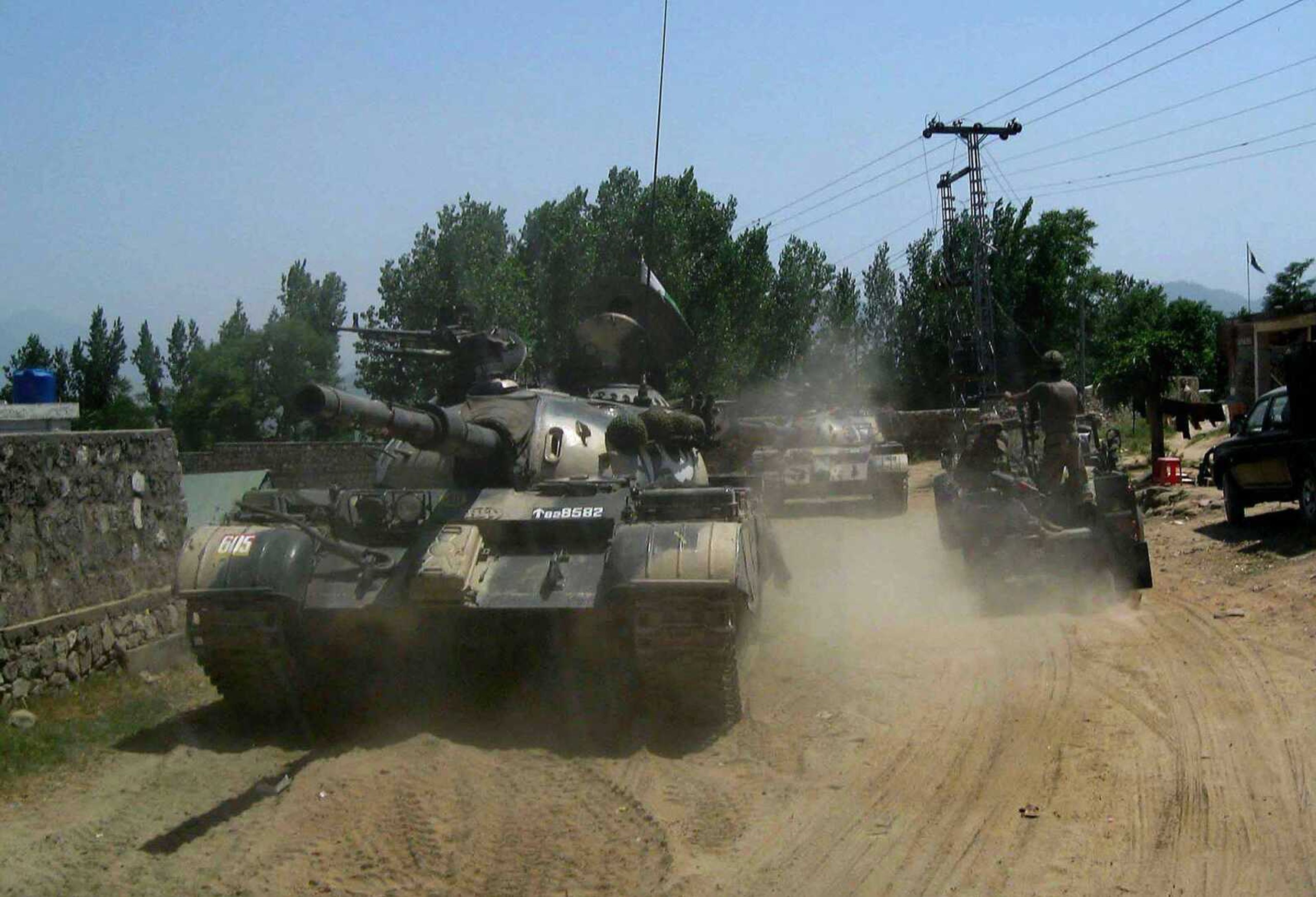Pakistan retakes town in Swat Valley
ISLAMABAD -- The Taliban have fled the Pakistani army's advance on the main town in the Swat Valley, delivering the military a strategic prize in its offensive against militants in the country's northwest, commanders said Saturday. Taliban fighters had dug themselves into bunkers built into hotels and government buildings in Mingora, and initially offered stiff resistance as troops first closed roads leading to the town then began moving in earlier this week, army spokesman Maj. ...
ISLAMABAD -- The Taliban have fled the Pakistani army's advance on the main town in the Swat Valley, delivering the military a strategic prize in its offensive against militants in the country's northwest, commanders said Saturday.
Taliban fighters had dug themselves into bunkers built into hotels and government buildings in Mingora, and initially offered stiff resistance as troops first closed roads leading to the town then began moving in earlier this week, army spokesman Maj. Gen. Athar Abbas said.
Aid was being distributed to some of the estimated 20,000 people who were trapped in Mingora, and water and gas supplies were being restored. But Abbas said it would be at least two weeks before power is switched back on, and refugees were not yet being encouraged to start returning to their homes.
About 3 million people have fled the fighting in Swat, and the exodus has raised fears of a humanitarian crisis.
Abbas said an unknown number of militants were able to escape Mingora town despite the military having it surrounded.
The military launched an offensive about a month ago in the Swat Valley and neighboring areas to oust Taliban militants who had been extending their control over the region near the border with Afghanistan.
U.S. and other officials say the lawless border region is being used by al-Qaida and the Taliban as a base to plan and launch attacks on Western forces in Afghanistan, and see the offensive as a test of Pakistan's resolve to fight extremism on its soil.
Government troops had been advancing steadily into the Swat region for about a month, bombarding towns from the air and fighting house-to-house with Taliban gunmen in some places.
"When they realized that if they did not leave these areas the noose would tighten around them and they would not find a way to leave ... they decided to end the fight and leave," Abbas said.
Information Minister Qamar Zaman Kaira said the number of people uprooted from their homes by the fighting had reached "around 3 million," and that more than 190,000 of them were living in refugee camps. The rest are staying with relatives or relying on goodwill from local residents.
The widespread domestic support for the campaign so far could sour if the government is perceived to have failed the refugees, or if a high number of civilian casualties is revealed.
Abbas said an emergency medical team had been flown to Mingora and would work to reopen the town's hospital and treat civilians wounded in the fighting.
The Taliban has warned it will launch terrorist strikes in Pakistani cities in retaliation for the campaign, and claimed responsibility for last Wednesday's gun and suicide bomb attack in the eastern city of Lahore that killed at least 30 people. A day later, three suicide bombings killed at least 14 people in two cities in the northwest.
Abbas said on Saturday that 1,217 militants have been killed in the Swat offensive and 79 arrested, and 81 soldiers have died. The military has not released civilian casualty numbers and says all care is being taken to protect the innocent.
The figures could not be independently verified. The tally and the extent of destruction caused by the fighting is largely unknown because media have been restricted from traveling in the region.
Abbas said he could not say how long the offensive would last.
Prime Minister Yousuf Raza Gilani on Saturday defended the decision to launch the operation, saying it was necessary because the Taliban's advance from its stronghold of Swat into neighboring Buner last month was a direct challenge to the government.
"The very existence of Pakistan was at stake, we had to start the operation," Gilani told a group of workers at state-owned Pakistan Television.
He promised cash payments to people forced from their homes and a massive reconstruction effort.
-----
Associated Press writers Asif Shahzad and Munir Ahmad in Islamabad contributed to this report.
Connect with the Southeast Missourian Newsroom:
For corrections to this story or other insights for the editor, click here. To submit a letter to the editor, click here. To learn about the Southeast Missourian’s AI Policy, click here.










